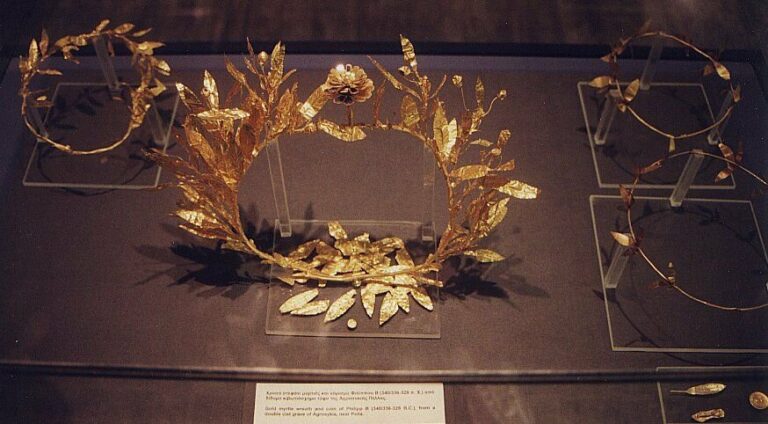Meaning
Biblical Roots
The name *Stefan* carries a rich history and profound meaning, deeply rooted in **Biblical** tradition.
Originating from the Greek word *Stephanos*, meaning “crown” or “garland,” *Stefan* embodies a sense of victory, triumph, and honor.
In the New Testament, Saint *Stephen* is the first Christian martyr, known for his unwavering faith and courageous witness before the Sanhedrin.
*Stephen*’s martyrdom became a powerful symbol of sacrifice and devotion to Christ, solidifying the name’s association with strength and perseverance in the face of adversity.
The enduring popularity of *Stefan* across various cultures and languages speaks to its timeless appeal and profound symbolic resonance.
Variations Across Cultures
The meaning of a name often transcends its literal translation, carrying cultural, historical, and personal significance.
In the case of the name “Stefan,” its meaning and variations across cultures provide a fascinating glimpse into linguistic evolution and shared human experiences.
Origin and Meaning:
“Stefan” is derived from the Greek name “Stephanos,” which means “crown” or “garland.” This symbolism likely stemmed from ancient Greece, where wreaths of flowers were awarded to victors in athletic competitions and other achievements.
Historical Significance:
The name has historical significance as it was borne by several prominent figures throughout history. Saint Stephen, the first Christian martyr, is a notable example, whose story played a crucial role in the spread of Christianity.
Variations Across Cultures:
* **English:** Stefan
* **German:** Stefan
* **French:** Stéphane
* **Italian:** Stefano
* **Spanish:** Esteban
* **Russian:** Степан (Stepan)
* **Polish:** Stefan
These variations demonstrate the name’s widespread adoption and adaptation across different linguistic and cultural landscapes.
Cultural Associations:
“Stefan” often evokes associations of strength, nobility, and religious devotion due to its historical connections with Saint Stephen. However, cultural perceptions can vary. For instance, in some Slavic cultures, the name might also be associated with kindness and gentleness.
Conclusion:
The name “Stefan” offers a rich tapestry of meaning, woven from ancient Greek origins, historical figures, and diverse cultural interpretations. Its enduring popularity across generations and languages speaks to its timeless appeal as a symbol of strength, faith, and human resilience.
Origin
Greek Influence
The name Stefan originates from the Greek name “Στέφανος” (Stephanos), meaning “crown” or “garland.” This connection to a crown speaks to the significance of victory and triumph associated with the name.
Greek influence on the English language is profound and multifaceted.
Firstly, ancient Greek literature, philosophy, and mythology have permeated Western culture for millennia.
This has resulted in numerous Greek words being adopted directly into English. Examples include “alphabet,” “democracy,” “philosophy,” “theatre,” and “physics.” Many scientific terms also trace their roots back to Greek.
Secondly, Latin, the language of classical Rome, borrowed extensively from Greek. Since English also evolved from Latin, many words in English have a Greek origin via Latin.
This indirect influence is particularly evident in fields like medicine, law, and theology.
Finally, Greek roots often appear in compound words and suffixes within the English language.
For instance, “telepathy” (from the Greek “tele” meaning distant and “pathos” meaning feeling), “diagnosis” (from “dia” meaning through and “gnosis” meaning knowledge), and “-ology” (meaning the study of) all illustrate this phenomenon.
The enduring legacy of Greek influence on English is a testament to the intellectual and cultural richness of the ancient world.
Evolution Through Time
The name Stefan originates from the Greek word “Stephanos,” which means “crown” or “garland.” This association with royalty and victory reflects a rich history and cultural significance.
Stefan’s journey through time began in ancient Greece, where it was widely used as a given name. The popularity of the name spread across the Roman Empire, becoming a common choice for boys in both Latinized and Greek-speaking regions.
During the Middle Ages, Stefan continued its eastward expansion, reaching prominence in Slavic cultures. It became a popular royal name in Eastern Europe, with various rulers and noblemen bearing the name throughout history.
The name’s influence also extended to Western Europe through Christianization. Saint Stephen, the first Christian martyr, played a pivotal role in establishing Stefan as a sacred name associated with faith and martyrdom.
Over the centuries, Stefan has been adapted and transformed into numerous variations across different languages and cultures. Some common variations include Stephan, Stevan, Stefano, Esteban, and Steven.
Today, Stefan remains a cherished and enduring name, carrying with it a legacy of strength, nobility, and spirituality. Its timeless appeal speaks to the power of language and culture to shape and preserve our identities.
History
Medieval Era Significance
The medieval era, spanning roughly from the 5th to the 15th centuries, holds profound significance in shaping Western civilization.
This period witnessed a complex interplay of factors that profoundly influenced social structures, political landscapes, religious beliefs, and cultural expressions.
Here are some key aspects highlighting the medieval era’s significance:
- The Rise of Feudalism:
Medieval society was largely characterized by feudalism, a decentralized system of land tenure and obligations. Lords granted fiefs to vassals in exchange for military service and loyalty, creating a hierarchical structure that permeated all levels of society.
- The Growth of Christianity:
Christianity emerged as the dominant religion in Europe during the medieval era. The Church wielded immense influence over both secular and spiritual matters. Monasteries served as centers of learning and cultural preservation, while cathedrals became awe-inspiring symbols of religious devotion.
- The Crusades:
The Crusades were a series of military expeditions launched by European Christians to reclaim the Holy Land from Muslim control. While ultimately unsuccessful in their primary objective, these campaigns had significant consequences, fostering cultural exchange, stimulating trade, and contributing to the growth of cities.
- The Development of Towns and Cities:
Despite its largely agrarian character, the medieval era witnessed the emergence of towns and cities as centers of commerce, craft production, and intellectual activity. The growth of urban populations challenged traditional social structures and contributed to the rise of a new merchant class.
- The Black Death:
The Black Death, a devastating pandemic that ravaged Europe in the 14th century, had profound demographic and social consequences. It led to mass mortality, labor shortages, and economic upheaval, ultimately contributing to the decline of feudalism and paving the way for the Renaissance.
The medieval era was a time of transformation and transition. While often romanticized or demonized, this period laid the foundation for many aspects of modern Western society. Its legacy continues to resonate in our political systems, religious beliefs, cultural traditions, and artistic expressions.
Notable Stefanbearers
The name Stefan originates from the Greek name “Στέφανος” (Stephanos), which means “crown” or “garland.” This symbolic meaning is deeply rooted in history and has influenced the name’s widespread adoption across various cultures.
Throughout antiquity, a crown symbolized victory, power, and honor. In ancient Greece, Stephanos was often used as a title for military leaders who achieved significant victories in battle or for individuals who excelled in athletic competitions.
The name Stefan found its way into the Roman Empire with the expansion of Greek culture. The Romans adopted the name, Latinizing it to “Stephanus.” During this period, Saint Stephen, the first Christian martyr, became a prominent figure, and the name gained new significance within Christianity. His unwavering faith and willingness to die for his beliefs made him a role model for Christians.
The influence of the name Stefan extended far beyond Greece and Rome. It spread across Europe through trade routes and cultural exchange. In Slavic cultures, it evolved into variations such as Stefan, Stevan, Stjepan, and István. In German-speaking countries, it became Stephan.
Notable Stefanbearers throughout history include:
- Saint Stephen, the first Christian martyr: His unwavering faith and sacrifice have made him a revered figure in Christianity for centuries.
- Stephen Hawking, renowned physicist: Known for his groundbreaking work on black holes and the origins of the universe, despite battling amyotrophic lateral sclerosis (ALS) throughout his life.
- Stefan Zweig, acclaimed novelist and biographer: His works often explored themes of love, loss, and the human condition against the backdrop of political upheaval in Europe.
- Stephen King, prolific author of horror fiction: His novels, such as “The Shining,” “It,” and “Carrie,” have terrified generations of readers and cemented his status as a master of suspense.
Today, Stefan remains a popular name in many parts of the world. Its enduring appeal speaks to its rich history, cultural significance, and the inspiring legacy of those who have borne the name.
From ancient Greece to modern times, Stefan has symbolized strength, wisdom, and unwavering spirit.
- 30 Best B2B Leads Database Providers to Try in 2025 - April 26, 2025
- Best Clay Alternatives for 2025 - April 26, 2025
- Best Lusha Alternatives for 2025 - April 26, 2025


